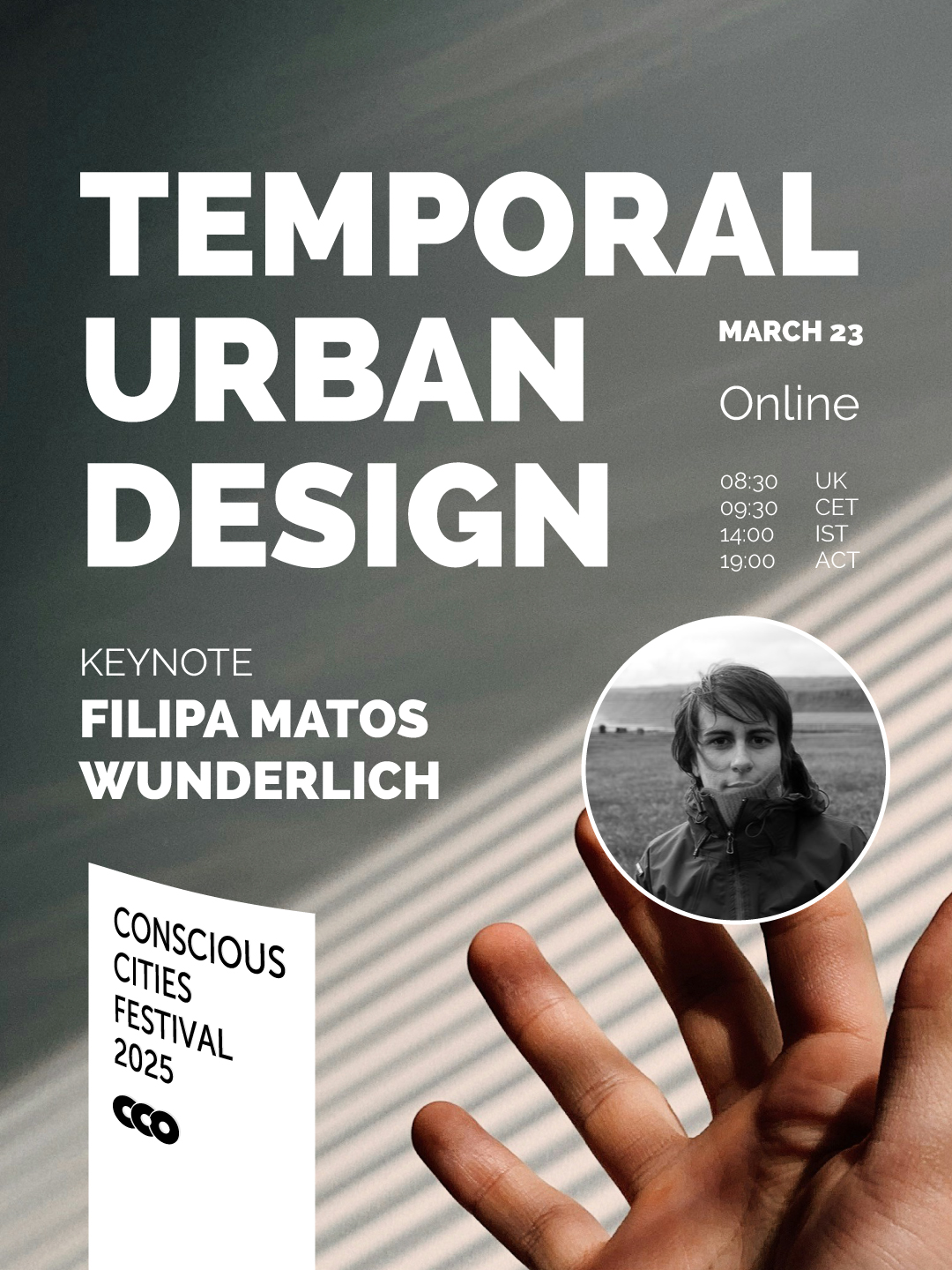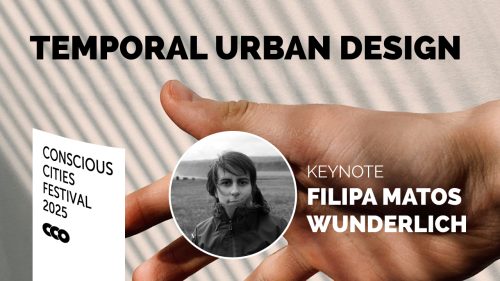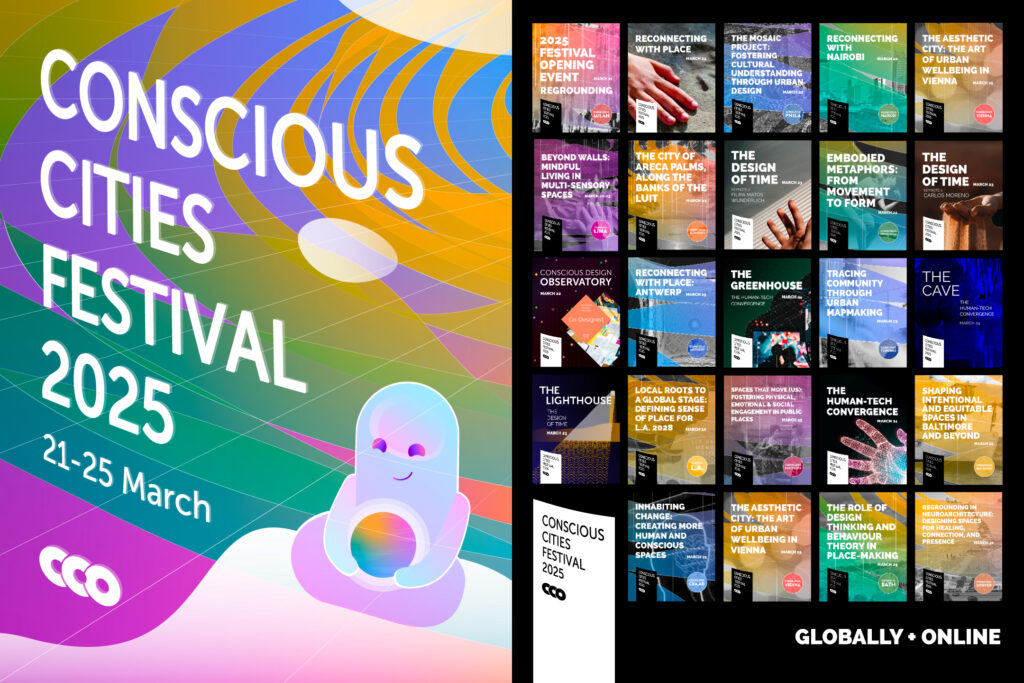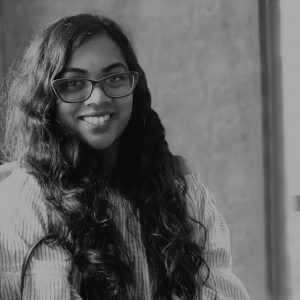To many, the scarcity of time in daily life is a source of stress and in some cases creates a cycle of time poverty. Over-burdened routines and a deficit of presence in our routines negatively impact our wellbeing and our ability to connect empathically. How much of this experience can be mitigated or reversed by the environments we inhabit?
Can the conscious design of our surroundings and resulting daily rituals empower us to shape experiences that foster relaxation, creativity, and meaningful engagements? How do we forge a new, healthier relationship with time?
Join us for a special event at The Centre for Conscious Design as we explore the intricate relationship between time, design and our lives. This Keynote will be delivered by Prof. Filipa Matos Wunderlich, followed by a dynamic dialogue with the audience and CCD Fellows.
Talk: Temporality, Rhythm and Place: a new temporal approach to urban aesthetics.
As cities’ temporal crisis aggravates, accrued by unsustainable growth-led development, growing estranged patterns of behaviour and the deterioration of mental-health. In this context, there is a need for a paradigm shift in the way we think and practice urban place design for contemporary urban environments.
This keynote is on an alternative approach coined Temporal Urban Design that challenges designers, decision-makers and researchers with a new aesthetics of city and place. This aesthetics shifts the focus from physical form and materiality onto time and rhythm, performance, performativity and affect in urban space. The focus is on “place-temporality” and “place-rhythms”. Cities are seen as ephemeral and performative, where material urban elements such as buildings, streets, squares and parks are the visual and physical stage-sets for everyday rhythmic performances that create the quality of urban space.
Temporal urban aesthetics looks at urban places as an art form and its temporal design as experiential and performative, shaped through ‘praxis’, i.e. processes of co-production and practice. This place temporal aesthetics can be mapped and orchestrated, played and choreographed, and is as such analogous to the aesthetics of music.
Supported by theories of temporality as phenomenological time and distaff theories on temporal territoriality through rhythm and refrain, as well as by recurrent analogies between the aesthetics of everyday social-spatial realm, its temporality, and that of music, this alternative temporal aesthetics of place supports new forms of place analysis and design. Also, it is the lens through which urban designers can better understand and learn to actively influence or co-design the rhythmic condition in which we live. ie. how to design social place-rhythms of co-production to engender common temporal experiences.









